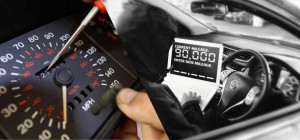 What Does Your Car Mean to You?
What Does Your Car Mean to You?
Owning a car means many different things to different people. For some, it’s a status symbol; others see owning a car as a necessity – something they couldn’t do without; many young people see driving as their first taste of freedom, whilst older or less able-bodied people may think of their car as a symbol of the independence that they cling to. Ultimately cars are very personal commodities and can be a very important part of a person’s life.
Wear and Tear – Where to Draw the Line?
No matter how much you love your car, or which car brand you choose, unfortunately, it’s inevitable that things will eventually start to go wrong; it can soon become uneconomical to repair an older vehicle. You have to expect the odd fault to occur occasionally, but when problems mount up, garage costs can quickly become prohibitive; in older vehicles the cost of repair can easily exceed the value of the car itself! Therefore, you should regularly consider the age, condition, and mileage of your car in order to maximise your chances of selling it at a good price. You also need to keep looking and listening out for any signs of damage to your vehicle- recognising a fault early on can save you hundreds of pounds.
For the sake of its future value, ensure your car is serviced regularly by a reputable garage, and ensure the service is recorded in the Car Log Book.
However you look after your car, don’t take short-cuts when it comes to its maintenance – it is never worth it in the long run.
The Buoyant Used-Car Market
These days, fewer new cars are being purchased. Given volatile global markets and uncertain economic times, less people are prepared to pay the cost of a brand new vehicles. Besides, the moment a new car is driven off the garage forecourt, a huge proportion of its value is instantly wiped off. In financial terms, this represents a bad deal for the buyer, whose assets are reduced in a heartbeat. This is despite the difference in condition between a brand new car and a six-month-old car often being fairly negligible.
Therefore, buying a quality used-car can be a sensible financial choice; buyers can get a car in a good condition for a very reasonable price, meaning their money goes further. An increasing number of people are buying used vehicles as a way of saving money. Today, people change their cars more regularly – especially given the prevalence of Contract Lease Hires. This means there are millions of quality, relatively new used cars waiting to be snapped up by a new owner.
Getting a Good Deal – How Much is Your Car Actually Worth?
However, when changing your car, it is important to consider value for money – on both sides of the deal. Naturally, you want to get the best price for the car you are selling, and find the best value, quality used car you can find. Unfortunately, it is easy to be misled; many car trading companies buy your car at a cheaper value than it is actually worth in order to generate a better profit for themselves. Therefore, it is vital to find out how much your car is actually worth. By taking a few moments to do this, you can avoid being misled or getting a bad deal. Knowing the value of your car means you have a figure to work to when you sell it, and therefore have strong negotiating power with a potential buyer.
Increase the Value of Your Car
By completing some simple maintenance on your vehicle prior to selling it, you can improve its perceived value and increase its appeal to buyers.
It’s a good idea to make sure your car is generally well-maintained. Getting your car professionally valeted prior to selling is a good idea; it can breathe fresh life into an older car. Consider the following: is the oil topped up? Are the tyres sufficiently inflated? Everyday car maintenance says a lot about how a car has been looked after more generally. Savvy buyers look out for cars where the everyday maintenance hasn’t been neglected.
Getting chips and scratches repaired on a vehicle you are selling may seem rather pointless, but buyers look out for bodywork in a good condition. It may cost a few pounds to repair damaged bodywork, but this should pay off in the final sale price.
It’s also a good policy to be relatively open and honest with a potential buyer. If the price you are selling your car for is reasonable based on its condition, buyers shouldn’t be put off by any minor faults. This also helps to develop trust and rapport, meaning you are more likely to sell for a good price!
Ultimately, given the buoyancy of the used car market, you may get more money for your used car than you think!
What does your car mean to you? Will your next car purchase be new or used?







